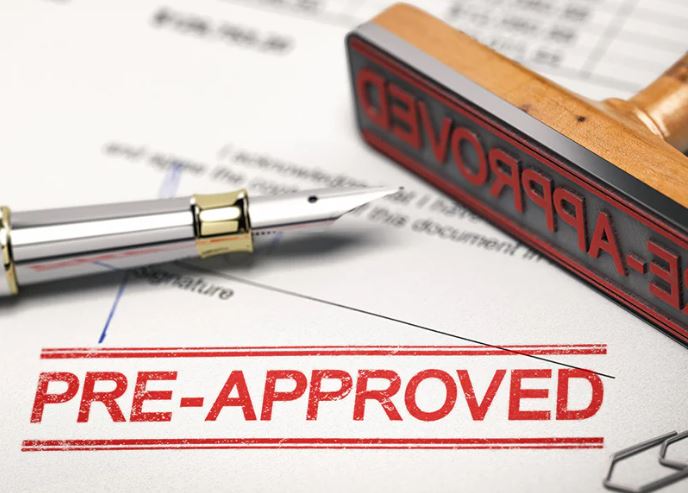Understanding Mortgage Preapproval Process
Definition and Importance
The mortgage preapproval process is a crucial step for homebuyers, serving as written verification from a lender that specifies the amount of money a buyer qualifies to borrow. This preapproval is not merely a formality; it lays the groundwork for the homebuying experience. Imagine stepping into a car dealership with financing ready versus just browsing. Preapproval provides you with that necessary advantage and confidence, enabling you to make competitive offers when you find a home you love.
Qualification Requirements
To secure a mortgage preapproval, certain qualifications must be met. Here’s a quick rundown of the necessary requirements:
- Proof of Income: This includes the last two years of tax returns and recent pay stubs.
- Proof of Assets: Lenders will request bank statements to verify available funds for the down payment and reserves.
- Good Credit Score: Generally, a minimum FICO score of 620 is required, although some programs may allow lower scores.
- Employment Verification: Lenders confirm employment status and income stability, which involves looking at pay stubs and contacting employers.
Each of these elements works together to give lenders insight into your financial capability, helping streamline your path to homeownership.

Benefits of Mortgage Preapproval
Competitive Advantage
Having a mortgage preapproval not only streamlines your home-buying journey but also gives you a significant edge in a competitive market. Sellers tend to view preapproved buyers as serious contenders, making it less likely they’ll entertain offers from those who haven’t taken this crucial step. For instance, during a recent home search, one prospective buyer experienced firsthand how a preapproval letter led to quicker negotiations and increased trust from sellers.
Budgeting with Confidence
Another exciting benefit of mortgage preapproval is that it establishes a clear budget for your home search. Knowing your borrowing capacity helps you focus on homes within your price range, reducing the risk of emotional swings over properties you can’t afford. Here are a few ways preapproval enhances your budgeting process:
- Clear Price Range: Determine how much you can realistically spend.
- Eliminates Heartbreak: Avoid falling in love with homes outside your financial reach.
- Focus on What Matters: Direct your search toward properties suited to your financial situation.
With these benefits, mortgage preapproval becomes an essential tool for navigating the home-buying landscape more effectively.
Steps to Get Mortgage Preapproval
Gather Necessary Documents
The first step to securing a mortgage preapproval is to gather all the necessary documents. This process may feel a bit daunting, but having your paperwork in order can significantly streamline your application. Key documents you’ll need include:
- Most Recent Pay Stubs: Show proof of your current income.
- W-2s or Tax Returns: Provide income verification for the last two years.
- Bank Statements: Highlight your financial health over the past two months.
- Addresses: List every address you’ve lived at in the last two years.
- Employment History: Include all employers from the last two years, including contact details.
Being organized can make this step much easier!
Meet with a Lender
Once you’ve gathered your documents, the next step is to meet with a lender. This is often done online, making it accessible and convenient. During the meeting, you’ll go over your financial details, and the lender will assess your documentation. They’ll pull your credit report, analyze your financial situation, and then discuss potential loan options with you. For example, a friend who recently purchased a home mentioned that having an open discussion with their lender helped clarify their borrowing options and provided insights into what they could actually afford. Being proactive in this step sets the stage for a smoother home-buying experience.
Factors Affecting Mortgage Preapproval
Credit Score
One of the most significant factors influencing mortgage preapproval is your credit score. This three-digit number reflects your creditworthiness and can dictate both your approval status and interest rates. A higher credit score not only boosts your chances of being preapproved but can also lead to lower monthly payments. For example, a friend of mine saw their interest rate drop significantly once they improved their score above 740.
- Good Score Range: 670-739 is considered good.
- Excellent Score Range: 740 and above can secure the best rates.
Maintaining a positive payment history and reducing credit utilization are essential strategies for improving this score.
Debt-to-Income Ratio
Another crucial measure that lenders scrutinize is your debt-to-income (DTI) ratio. This ratio compares your monthly debt obligations with your gross monthly income, helping lenders assess your ability to manage additional mortgage payments. Generally, a DTI below 45% is preferred; however, some lenders may allow up to 50% in specific situations. For instance, if your gross monthly income is $5,000 and your current debt payments total $1,500, your DTI would be 30%—a figure that typically aligns well with lender expectations.
- Calculation Formula: Monthly Debt Payments ÷ Gross Monthly Income x 100 = DTI Ratio
In summary, both your credit score and DTI ratio play significant roles in determining your mortgage preapproval eligibility. Understanding these factors empowers you to take proactive steps in your home-buying journey.
You can also read on: From CapEx to OpEx: How Colocation Can Save Your Business Money
Common Misconceptions About Mortgage Preapproval
One might think that mortgage preapproval is a guaranteed ticket to a loan, but this is far from the truth. It’s essential for prospective homebuyers to understand what preapproval truly means and what it does not.
Preapproval Equals Guaranteed Approval
A prevalent misconception is that once you have a mortgage preapproval, your funding is guaranteed. However, this isn’t the case. Preapproval is a conditional agreement based on a preliminary review of your finances but does not finalize your loan. Lenders still need to verify your financial situation and the property’s details before granting final approval.
Minimal Documentation Required
Some buyers think that preapproval requires little to no documentation. On the contrary, while the process may begin with self-reported data, lenders will eventually demand substantial documentation, including proof of income, assets, and liabilities. Educating oneself about these misconceptions can create a smoother home-buying experience and help set realistic expectations.
You can also read on: Top Tips and Tricks for Winning Scholarships in Germany

